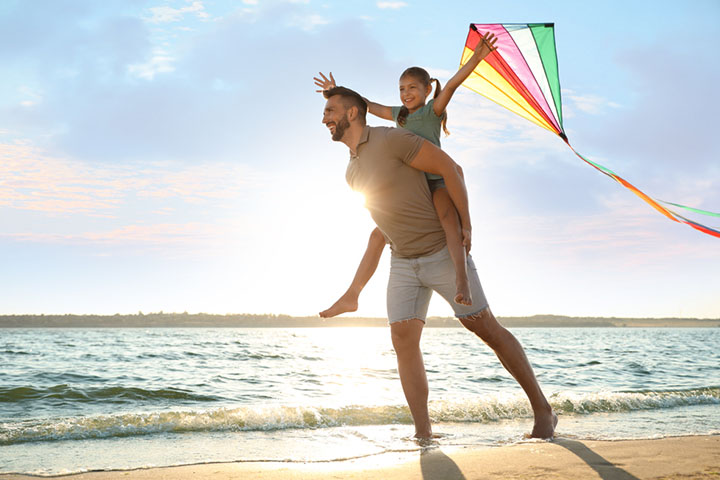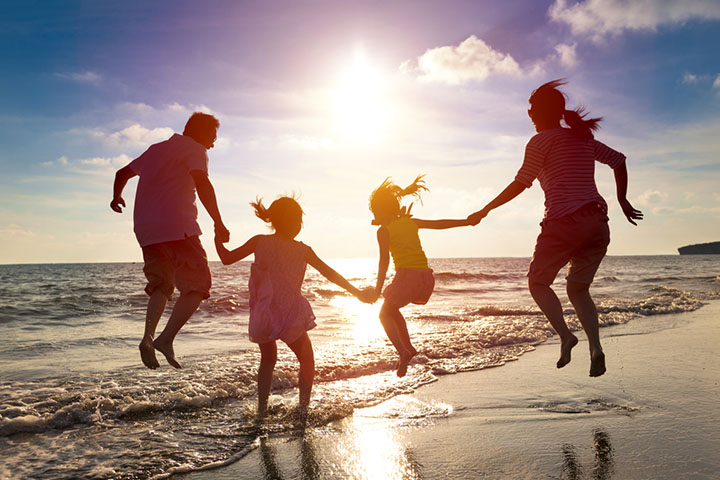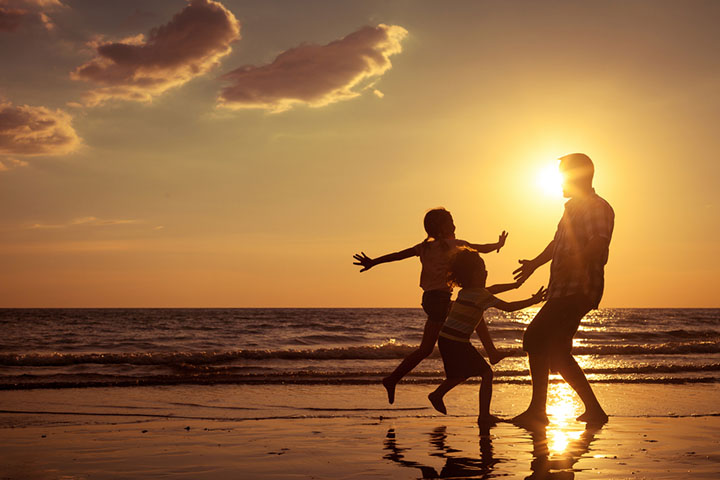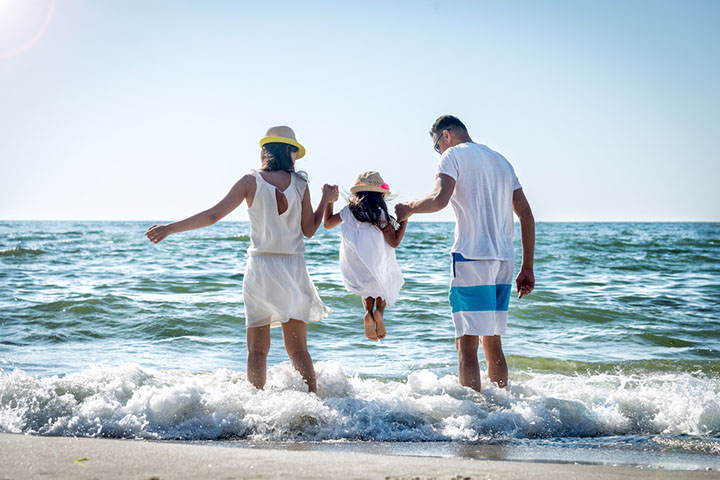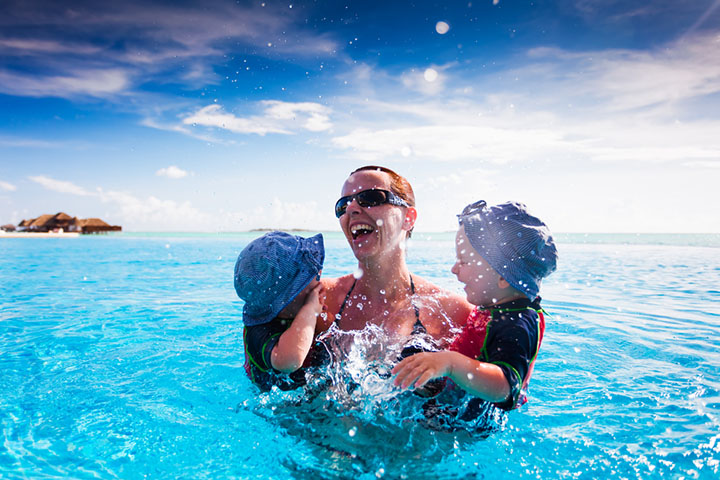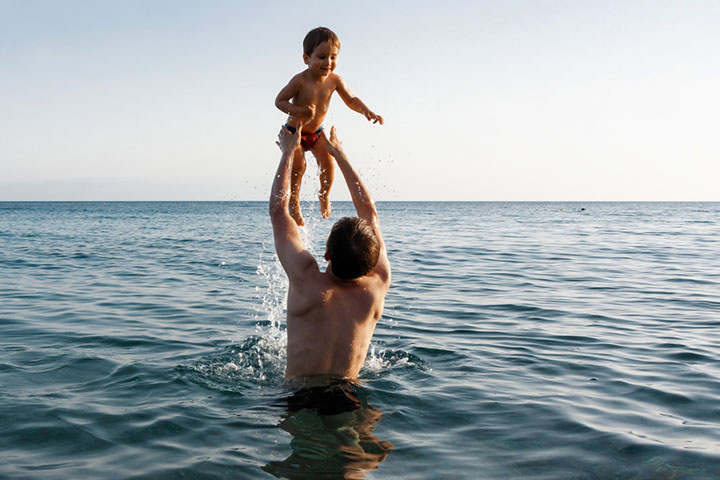
Image: Shutterstock
As summer approaches, families eagerly head to the beach to bask in the sun and indulge in outdoor adventures. While the beach offers a delightful escape, it’s essential to prioritize safety, particularly when children are part of the equation. Educating kids about beach safety becomes an important responsibility to ensure their well-being and foster a positive and secure beach experience. In this article, we will delve into effective strategies and practical tips to impart valuable beach safety lessons to children. By providing them with awareness and understanding, you can equip your children with lifelong safety skills, enabling them to enjoy the beach confidently and responsibly. Read on to know them all!
1. Start With The Basics
Image: Shutterstock
Begin by explaining the fundamental rules and concepts of beach safety to your children. Teach them about the importance of swimming in designated areas and never going too far from the shore. Explain to them the significance of understanding and obeying beach warning signs, including flags that indicate current water conditions. Reinforce the concept of never swimming alone and the value of having a buddy system in place.
2. Discuss Rip Currents
Image: Shutterstock
Rip currents are powerful, narrow channels of fast-moving water that can quickly carry swimmers away from the shore. Educate your children about rip currents and how to identify them. Teach them that if they find themselves caught in a rip current, it’s essential to remain calm, avoid swimming against the current, and instead swim parallel to the shore until they can safely swim back to land or call for help.
3. Help Them Identify Lifeguards And Safe Zones
Image: Shutterstock
Teach your children to identify lifeguard stations and understand their significance. Explain that lifeguards are trained professionals who can provide assistance in case of emergencies. Emphasize the importance of staying within designated swimming areas, as these zones are monitored and considered safer for swimming.
4. Teach Them Water Depth Awareness
Image: Shutterstock
Ensure that your children have a clear understanding of water depth and how they can vary. Teach them to enter the water slowly, checking the depth and adjusting their activities accordingly. Encourage them to avoid diving headfirst into unfamiliar areas or shallow water, as it may pose a risk of serious injury.
5. Talk About Beach Hazards
Image: Shutterstock
Educate your children about potential beach hazards such as sharp shells, rocks, and marine life. Teach them to be cautious when walking or running on the beach and to always wear appropriate footwear to protect their feet. Encourage them to avoid touching or approaching any unfamiliar marine animals, as some may be harmful or venomous.
6. Discuss Emergency Procedures
Image: Shutterstock
Ensure that your children are familiar with emergency procedures and know how to call for help. Teach them how to dial emergency services and provide clear instructions on what information to rely on, including their location and the nature of the emergency. Additionally, consider teaching them basic first aid skills, such as treating minor cuts or scrapes.
7. Make Your Kids Practice Water Skills
Image: Shutterstock
Encourage your children to practice essential water skills to improve their comfort and confidence in the ocean. Teach them basic swimming techniques and the importance of treading water. Additionally, familiarize them with floating on their backs, which can provide a restful position and allow them to catch their breath if needed. Encourage them to practice these skills in a controlled and supervised environment before venturing into deeper water.
8. Ensure Constant Supervision
Image: Shutterstock
Emphasize the importance of constant adult supervision at the beach. As a parent, you should actively engage and monitor your children, especially when they are in or near the water. Remind your kids that even confident swimmers should not be left unattended or unsupervised.
9. Make Space For Open Communication
Image: Shutterstock
Create an environment where children feel comfortable discussing their concerns and asking questions about beach safety. Encourage open communication and actively listen to their thoughts and fears. Address their concerns patiently and provide reassurance while reinforcing the importance of following safety guidelines.
10. Teach Your Kids To Respect The Environment
Image: Shutterstock
Educate your children about the importance of respecting the beach environment. Teach them to dispose of their trash properly and avoid littering. Encourage them to appreciate the natural beauty of the beach and to avoid damaging or disturbing any wildlife or plant life they may encounter. Instilling a sense of environmental responsibility will help them develop a lifelong respect for nature.
Teaching children about beach safety is a vital responsibility that parents must undertake. By providing them with the knowledge and skills to navigate the beach environment safely, you can empower them to make informed decisions and enjoy their beach experiences with confidence. Through open communication, education, and constant supervision, you can ensure that your children create lasting memories while staying safe at the beach. In the comments, let us know your experiences with your kids at the beach!

